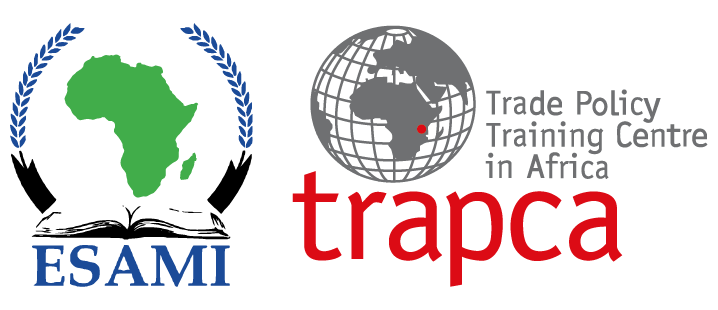

ESAMI-trapca is proud to support the Ethiopia Technical team on WTO accession this week, June 3rd to 7th, 2024, with tools for trade policy analysis. The Ministry of Trade and Regional Integration highlighted Ethiopia’s ongoing efforts to join the WTO since January 2003, emphasising the numerous activities undertaken to advance the pre-accession negotiation process. Capacity building through training, awareness creation, and panel discussions have been key in expediting negotiations. To further strengthen the country’s trade policy capabilities, the Ministry of Trade and Regional Integration, in collaboration with the UK Government and Cowater International under the TAF2+ Programme, organised a capacity-building training program on Trade Policy Analysis which was implemented by ESAMI-trapca. This initiative aimed to equip Ethiopian officials with the necessary tools to assess the potential impacts of trade policies and agreements on the nation’s economy, industries, and trade relationships, including the African Continental Free Trade Area (AfCFTA).
With Ethiopia’s involvement in various trade agreements and its aspiration to join the WTO, these tools empower officials to confidently evaluate and formulate effective trade policies that align with national development goals and international obligations. The course underscores the significance of evidence-based policymaking, encouraging participants to utilise data-driven approaches in their analysis. Through case studies and practical exercises, participants will learn to apply analytical tools to real-world trade policy issues, enhancing their decision-making and negotiation skills. The course will feature hands-on exercises with partial equilibrium models and various trade indicators, using data from UN COMTRADE and UNCTAD/World Bank WITS/TRAINS databases. Participants will also develop the ability to interpret their analysis results, gaining valuable insights into the impact of trade policies on Ethiopia’s economy, particularly in the agriculture and service sectors.
Trapca House
Esami Road;
P.O Box 3030,
Arusha,Tanzania
+255 27 297 0077 / +255 737 063 640
info@trapca.org / admissions@trapca.org
Mon – Fri 8:00 A.M. – 5:00 P.M.
